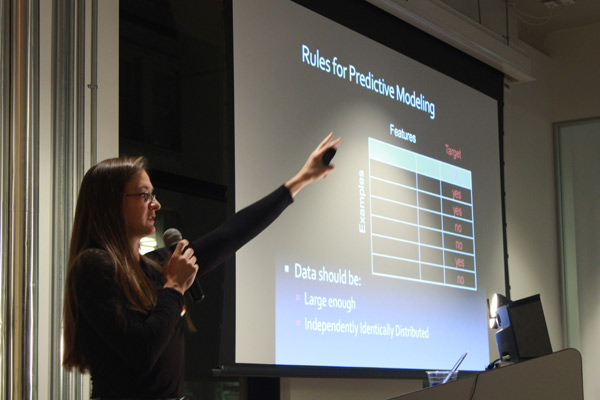
University of Alberta computing science PhD graduate Siamak Ravanbakhsh published his research in the scientific journal PLOS ONE on an automated process that increases the speed and accuracy of producing a person’s metabolic profile from a sample of biofluid such as blood serum or cerebrospinal fluid using NMR spectrometry. Such a profile can provide a functional read-out of the developmental, physiological or pathological state of a biological system. This ability to quickly and accurately measure the levels of various molecules in a single sample of biofluid marks a significant advance for simple, cost-effective, predictive medical screening.
“The analogy is that we’ve been looking at the world through a keyhole and now we’re looking through a picture window,” said David Wishart, a professor of biological sciences and computing science who co-supervised the research.
This software application, dubbed Bayesil, will accelerate the creation of libraries of metabolic profiles for different biofluids that can be used to develop preventive and diagnostic screening for various diseases — in some cases months or even years before a condition is detectable by current screening methods.
Wishart, who is also director of The Metabolomic Innovation Centre, and Russ Greiner, professor of computing sciences and co-supervisor of Ravanbakhsh’s research, will continue to develop Bayesil’s capabilities as a preventive and diagnostic tool. The study done by University of Alberta.